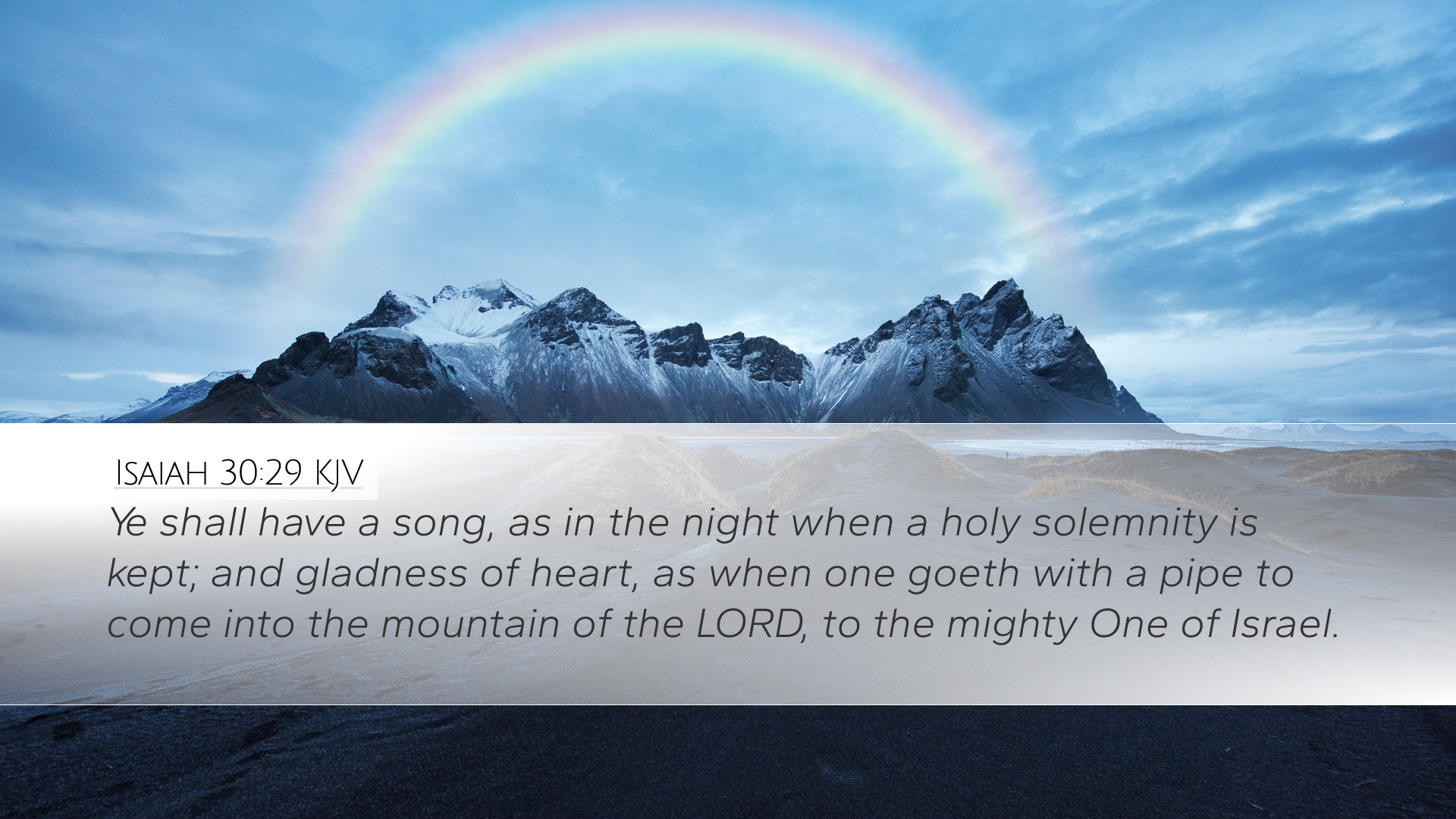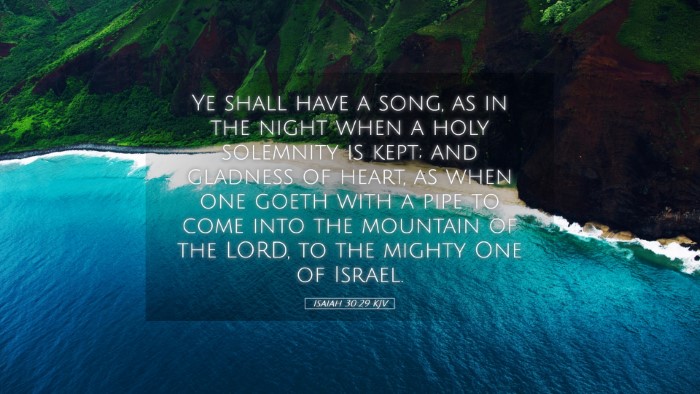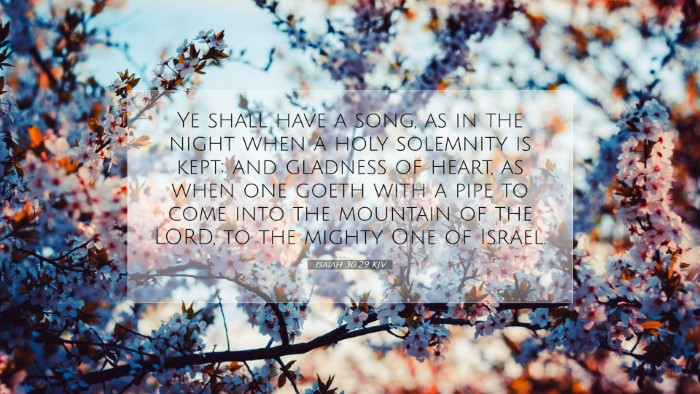Commentary on Isaiah 30:29
Isaiah 30:29 states: "You shall have a song, as in the night when a holy feast is kept; and gladness of heart, as when one goes with a flute to come into the mountain of the Lord, to the Mighty One of Israel."
Contextual Background
This verse is situated within a larger discourse in the book of Isaiah, wherein the prophet addresses the people of Judah. They are warned against trusting in foreign alliances and are called to return to their reliance upon God. The context reveals a transition from judgment to hope, reflecting God’s enduring mercy and the promise of deliverance.
Summary Insights from Public Domain Commentaries
1. Matthew Henry's Commentary
Matthew Henry highlights the joy that accompanies God’s deliverance. He notes that this passage suggests a jubilant celebration akin to a sacred feast. The joy expressed in this prophecy serves as an antidote to the despair faced by the Israelites. Henry draws parallels to the spiritual songs of believers, indicating that true worship arises from the heart as a response to God's faithfulness.
2. Albert Barnes' Notes
Albert Barnes expounds upon the imagery of song and gladness, emphasizing that the "night" symbolizes a time of darkness or trial, while the "holy feast" points to communal worship and the presence of God. He associates the flute with joyous expressions of praise during worship, suggesting that entering the "mountain of the Lord" signifies both a geographical and spiritual ascent towards God’s presence. Barnes encourages readers to see this as a promise of future restoration for those who trust in God amidst their troubles.
3. Adam Clarke's Commentary
Adam Clarke elaborates on the significance of the "Mighty One of Israel," interpreting it as a reference to God’s sovereign power. He indicates that this verse can be seen as a prophecy of the New Covenant, where believers experience a profound sense of joy akin to a festive gathering. Clarke suggests that the imagery in this verse is not merely poetic but is transformative, calling individuals from a place of despair into joyous communion with God.
Theological Implications
Theological reflection on Isaiah 30:29 reveals several key themes:
- The Nature of God’s Deliverance: The verse encapsulates the essence of deliverance as joyous and celebratory, portraying God not just as a Deliverer, but as a source of profound joy.
- Worship and Community: The references to song and feast highlight the communal nature of worship, reminding congregations of the importance of gathering to celebrate God’s goodness.
- The Transformation of Suffering: This passage reassures believers that even in their darkest times, joy is possible through faith and trust in God’s promises.
Practical Applications
For pastors, students, theologians, and scholars, this verse encourages several practical applications:
- Encouragement in Trials: This verse serves as a reminder that hardship can lead to joy when one remains steadfast in faith.
- Promoting Unity through Worship: Leaders should foster environments where communal worship through music and celebration is prioritized.
- Teaching on God’s Sovereignty: Emphasizing God’s sovereignty can provide comfort to believers, highlighting that no situation is beyond His reach or ability to transform.
Conclusion
Isaiah 30:29 presents a vision of hope characterized by joy and celebration. Drawing insights from Matthew Henry, Albert Barnes, and Adam Clarke, we see that the joys of worship, community, and divine deliverance stand at the forefront of this promise. For believers today, it invites a faithful engagement with God, promising joy even amid life’s tribulations.


